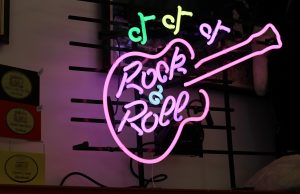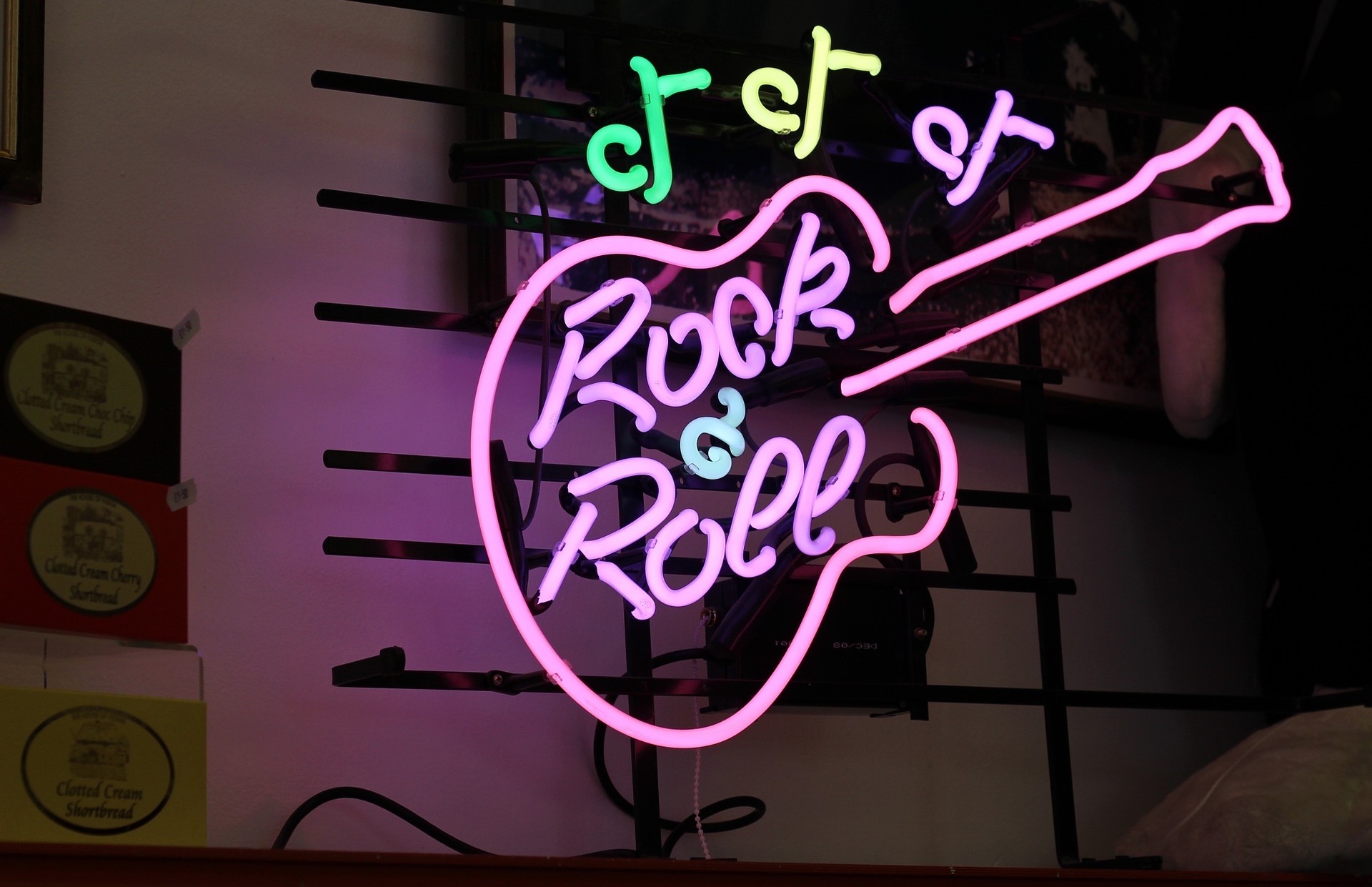A good band name is an incredibly valuable commodity. Pearl Jam might not be one of the most enduring rock bands of all time had they kept their original plan of being named after a disgraced former NBA player, or one. An audience may not recognize individual band members, but when they perform under one famous name, fans flock to support the group.
However, a band name is not just a cool signifier for your music. It can also carry legal significance if it is trademarked. But who is the legal owner of the band name when it is a trademark? Some members of a band enter into contracts dictating band name ownership and use. Others may operate without any agreements. Either way, it can be a source of tension among bands, or when bands break up.
Let’s take a look at these all-too common occurrences and examine a few famous trademark disputes between band members.
Wait – What’s a Trademark?
In order to understand why bands may value their name so much, it’s important to understand what a trademark is. A trademark is a signifier of a good or service being used commercially. It can be any word, phrase, design, sound, or even smell – as long as it identifies your good or service.

Not all words, designs, or other signifiers (often called “marks”) can be trademarked though. A word cannot be a mark if it is “generic” for an entire category of services. Also, if a word is descriptive of your goods or services it can be hard to trademark.
Descriptive marks are ones that merely describe an aspect of the goods or services being offered. For example, if your name is Joe and you sell bananas, you would not be able to register “Joe’s Banana Stand” as a trademark because it uses language that merely describes the purpose of the business. However, if you can show that the mark has obtained enough recognition among customers that they would associate the phrase “Joe’s Banana Stand” with your specific business, then you would have a valid trademark in the name.
Meanwhile, generic marks are those that are common language to refer to, or have become synonymous with, a specific good or service itself. For example, you could not trademark “Computer” for a laptop store because that is the common name of laptops. Also, a mark can become generic, even if it was not when initially coined. A good example of a mark becoming generic is Aspirin. Aspirin originally was trademarked for one brand of pain relief medicine using a certain compound. Due to its overwhelming success, society began using Aspirin to describe all pain relief medicine with the same compound, even though made by other manufacturers. At that point, it lost its trademark status because it became generic.
If your mark is not generic or descriptive, then it can be a valid mark and gain certain protections. A trademark enables you to prevent others from using your mark or similar marks that may confuse customers. This is most common for those that use the mark on the same goods and/or services as you. For instance, Apple can likely prevent other computer and phone manufacturers from using “Apple” to describe their products. If Apple sued for trademark infringement, i.e. violating the Apple trademark, it would likely win. However, Apple would have a harder time preventing a shoe manufacturer from calling themselves “Apple Shoes”
This protection can make trademarks extremely valuable – so much so that people will litigate very hard to protect their trademarks.
Now that we know what a trademark is and does, let’s jump into these infamous bands and their trademark struggles.
Bad Vibrations
Can you imagine suing your own band over a name? What about suing your cousin after making millions together performing music?

This was the case in the dispute between members of surf-rock legends, The Beach Boys, tried to “get around” trademark rights. Lead singer Mike Love had acquired the exclusive rights to “The Beach Boys” in the late 90’s from the band. Shortly afterwards, other founding members Brian Wilson (Love’s cousin) and Al Jardine performed concerts using “The Beach Boys” in their promotional materials. This prompted Love’s ire and he sued them to stop them from using the name.
The court found that use of “Beach Boys Family & Friends” by two founding members was infringing upon Mike Love’s exclusive rights to the trademark. The initial court case ruled in favor of Love in 2000, but further disputes about legal fees and other matters kept the members at odds. After years of litigation, the band members finally settled the matter. It just happened to be over eight years after it began. Was this a petty squabble, or a legitimate grievance? God Only Knows.
A “Deep” Dispute
You may not recognize the name Deep Purple. But every person who has learned guitar most likely started with their song “Smoke on the Water.” These classic rockers ruled the airwaves in the 70’s with their heavy riffs and driving rhythms.

That success didn’t stop the squabbling between members though. The band broke up in the late 1970’s and the members went their separate ways. In 1980, vocalist Rod Evans decided to hit the road with “Bogus Deep Purple,” playing Deep Purple songs with several unaffiliated musicians.
The band put a stop to this in the infamous HEC Enterprises v. Deep Purple case. It turns out Evans had filed a fraudulent trademark registration claiming he was the sole owner of the band name. The court found that all the band members had claim to the trademark and that Evans’ use infringed because it was confusing to consumers. The court ordered Evans to stop using any iteration of “Deep Purple” and to pay the other band members royalties for using their name to the tune of over $650,000. It goes to show, not even being a (Highway) Star can get you out of trademark violations!
We Are Family, But Not a Band
Sisters Debi, Joni, Kathy, and Kim Sledge once topped the charts as R&B/pop group Sister Sledge. You’ve undoubtedly heard their breakout hit, “We Are Family.” But what you might not know is that these sisters had a rough falling out. In 1989, Kathy Sledge left the group to go solo, but eventually used the name “Sledge Sisters,” this time with backup singers instead of her actual sisters.

Understandably, that caused a pretty big rift in the group. So much so, that when Pope Francis came to the United States, the Sledge Sisters performed, but refused to allow Kathy to join them. Later in 2013, Debi, Joni, and Kim sued Kathy for trademark infringement (who sued them right back) of the “Sledge Sisters” name because the band’s LLC was the rightful owner of the trademark.
The case ultimately settled, forcing Kathy to stop using the Sister Sledge name or claim that she is the only remaining member. While the sisters may claim they love each other, Kathy has said that “[e]veryone has some madness in his or her family. Our madness happens to be under a magnifying glass.” I guess that’s why they settled!
A Stone Cold Lawsuit
If you’re a fan of grunge, you no doubt know of the alternative rock titans, Stone Temple Pilots (STP). The group sold over 40 million records in the 90’s off the success of hits like “Plush” and “Interstate Love Song.”

The success didn’t smooth over the problems lead singer Scott Weiland had with the rest of the band though. Before his untimely death, STP fired Weiland claiming his chronic tardiness and struggles with addiction hurt the band’s success.
Weiland didn’t go quietly though. He publicly denied that STP had the ability to fire him. He continued touring under the Stone Temple Pilots name, and even attempted to stop radioplay of the group’s new songs.
The remaining STP members then filed a lawsuit. They alleged trademark infringement for “misappropriating the Band’s name and assets to further his solo career.” The group managed to settle the dispute out of court after Weiland countersued them. The settlement allowed the remaining members to keep touring as Stone Temple Pilots, even recruiting the late Chester Bennington from Linkin Park to replace Weiland.
It goes to show that trademarks can be a valuable asset – so valuable that even those closest to you may become your adversaries if they don’t understand trademark rights.

Andy Sutherland
Associate Blogger
Loyola University Chicago School of Law, J.D. 2023
